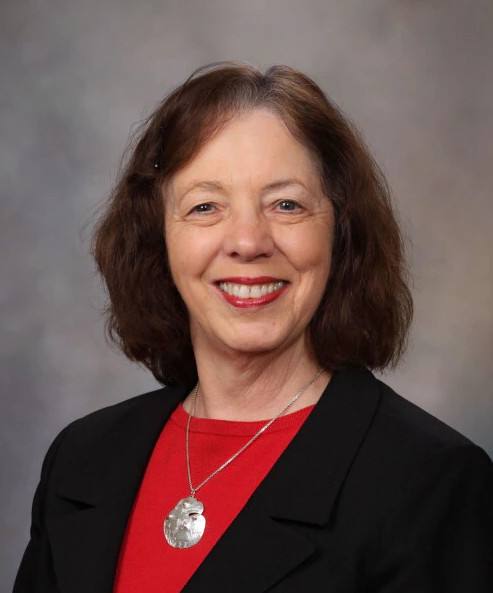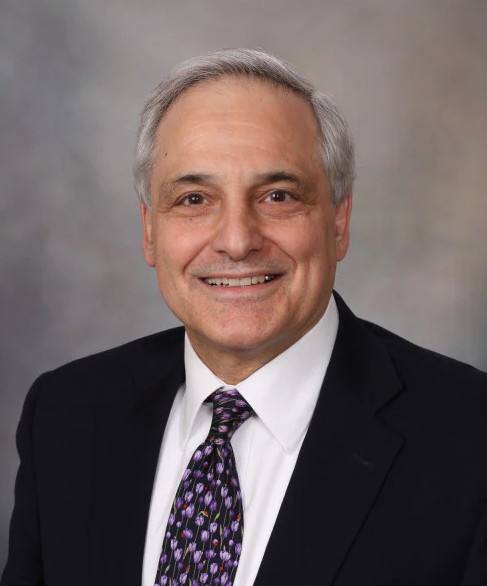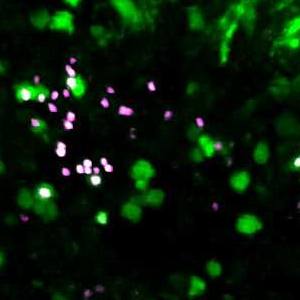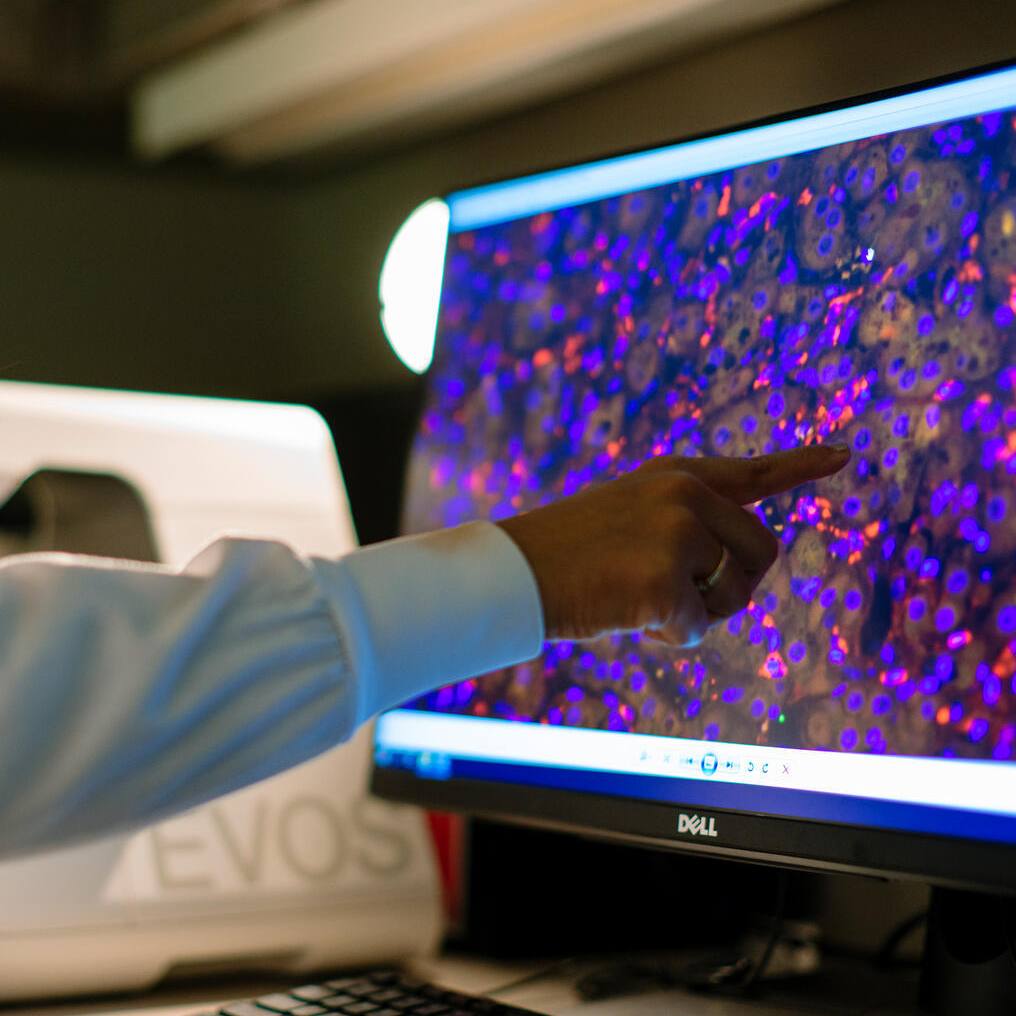-
Mayo Clinic physicians recognized by the Association of American Medical Colleges

Mayo Clinic physicians Judith Kaur, M.D. and Thomas R. Viggiano M.D., M.Ed. have been recognized by the Association of American Medical Colleges with 2021 AAMC awards. The annual awards honor individuals and institutions making significant contributions to medical education, research, clinical care, and community engagement.
Judith Kaur, M.D., Professor of Oncology, Mayo Clinic College of Medicine and Science
Dr. Kaur, of the Mayo Clinic Cancer Center in Florida received The Herbert W. Nickens Award for her outstanding contributions to promoting justice in medical education and health care equity in the United States. As one of the only practicing Native American medical oncologists in the United States, Dr. Kaur leads a national conversation to recognize cancer as a major unaddressed health disparity in Indigenous communities in the United States and internationally.

Her leadership of the Spirit of Eagles project, one of her more than 150 National Institutes of Health-funded projects, engaged native populations in culturally specific research, provided scholarships for students in medicine or biological sciences training, and advocated for improved cancer prevention and control. She also leads the Native CIRCLE, which provides culturally appropriate cancer education materials.
Dr. Kaur significantly expanded tribal access to palliative care by developing the course Case-Based Palliative Care Training for Indian Health Service Providers, which trained more than 50 Indian Health Service providers in partnership with the National Cancer Institute and the Indian Health Service. Dr. Kaur is board-certified by the American Board of Hospice and Palliative Medicine.
Over the past 25 years, she has mentored hundreds of minority medical students. The Hampton Scholars and Hampton Faculty Fellows programs she developed have mentored over 100 Indigenous students across the United States. One mentee said, “Her never-give-up attitude for the health and equity of all people, especially indigenous people, gives her unwavering vision and effort towards the betterment of future generations.”
Dr. Kaur earned a bachelor’s degree in elementary education and a master’s degree in counseling before pivoting to a career in medicine. She was one of the first candidates accepted to the Indians Into Medicine Program at the University of North Dakota School of Medicine and Health Sciences. She then transferred to the University of Colorado Health Sciences Center, where she received her M.D. with honors and later completed her residency, an internship, and a hematology/medical oncology fellowship.
As the medical director for the Native American Programs at the Mayo Clinic Cancer Center, Dr. Kaur is involved in national research and outreach programs to American Indians and Alaska Natives.
Dr. Kaur's research includes a special interest in women's cancers — particularly breast and cervical cancers. She was the principal investigator for a molecular markers study in breast cancer in American Indian and Alaska Native women and a mammographic and clinical risk factor-analysis study.
Dr. Kaur works collaboratively with many cancer organizations, including the National Cancer Institute, Indian Health Service, Centers for Disease Control and Prevention, and American Cancer Society. She is also funded by the Robert Wood Johnson Foundation to mentor minority scholars.
Thomas R. Viggiano M.D., M.Ed., Professor of Medical Education and Medicine, Mayo Clinic College of Medicine
Dr. Viggiano is the Barbara Woodward Lips Professor of Medical Education and Medicine and the Emeritus Dean, Faculty Affairs at the Mayo Clinic College of Medicine.
As a gastroenterologist, professor, and dean at Mayo Clinic, Dr. Viggiano has made a significant impact in academic medicine through his contributions in faculty affairs, education scholarship, curriculum quality improvement, and medical and interprofessional education.

In multiple leadership positions, he has advocated for vital changes to address important issues and advance the causes, communities, and organizations he served.
For decades, he has taught in interprofessional education programs at Mayo Clinic and in several international IPE leadership programs. He has served on expert panels and as the physician representative to the Interprofessional Education Collaborative that formulated interprofessional education competencies.
Dr. Viggiano designed a medical school curriculum that improved clinical reasoning skills and understanding of public health and care delivery issues. He co-authored principles for applying the neurobiology of learning to curriculum design, and he was a leading proponent for integrating basic and social sciences into the curriculum.
He helped found the International Association of Medical Science Educators (IAMSE).
With the Harvard Macy Institute, he pioneered the application of quality improvement methodology to curriculum evaluation and planning.
Many schools adopted this strategy, and the Liaison Committee on Medical Education has implemented an accreditation standard recommending that schools use quality improvement methodology in curriculum planning.
Dr. Viggiano instituted education research at Mayo Clinic, and for over 20 years Mayo Clinic scholars have contributed many publications. Mayo’s program was published as a model for institutional support of education scholarship and was adopted by numerous institutions.
Dr. Viggiano has mentored educators from many institutions and has been a leading advocate for funding and mentoring in education research. He helped define and publish criteria for rewarding education scholarships with academic promotion.
As dean for faculty affairs, he conceived a lifecycle model to anticipate diverse faculty needs in various career stages. His model became the AAMC’s template for designing faculty affairs offices, and the lifecycle served as the framework for collaboratively developing and sharing institutional policies and best practices and for fostering wellness and providing effective and equitable support to faculty.
Dr. Viggiano served as the founding chair of the AAMC Group on Faculty Affairs (GFA), and he received the inaugural GFA Carole J. Bland Phronesis Award.
Dr. Viggiano earned his MD at Temple University and completed his internal medicine residency at the University of Pittsburgh. After completing a fellowship in gastroenterology at Mayo Clinic, he earned a Master of Education at the University of Minnesota. He has received numerous awards for teaching, humanism, and professionalism; and his education contributions were recognized with a named professorship. He has served on the Boards of Directors of both the AAMC and IAMSE and now serves on the editorial board of MedEdPORTAL and on the Best Evidence Medical Education Collaborative.
Other 2021 AAMC award recipients include Francis Collins, M.D. Ph.D., Anthony S. Fauci, M.D., Suzanne Topalian, M.D., Peter Hotez, M.D., Ph.D., Natalie Rodriguez, M.D., Tracy Fulton, Ph.D., Valerie Lang, M.D. MHPE, William Raszka Jr., M.D., Leonard White Ph.D., and the University of Arkansas for Medical Science.







